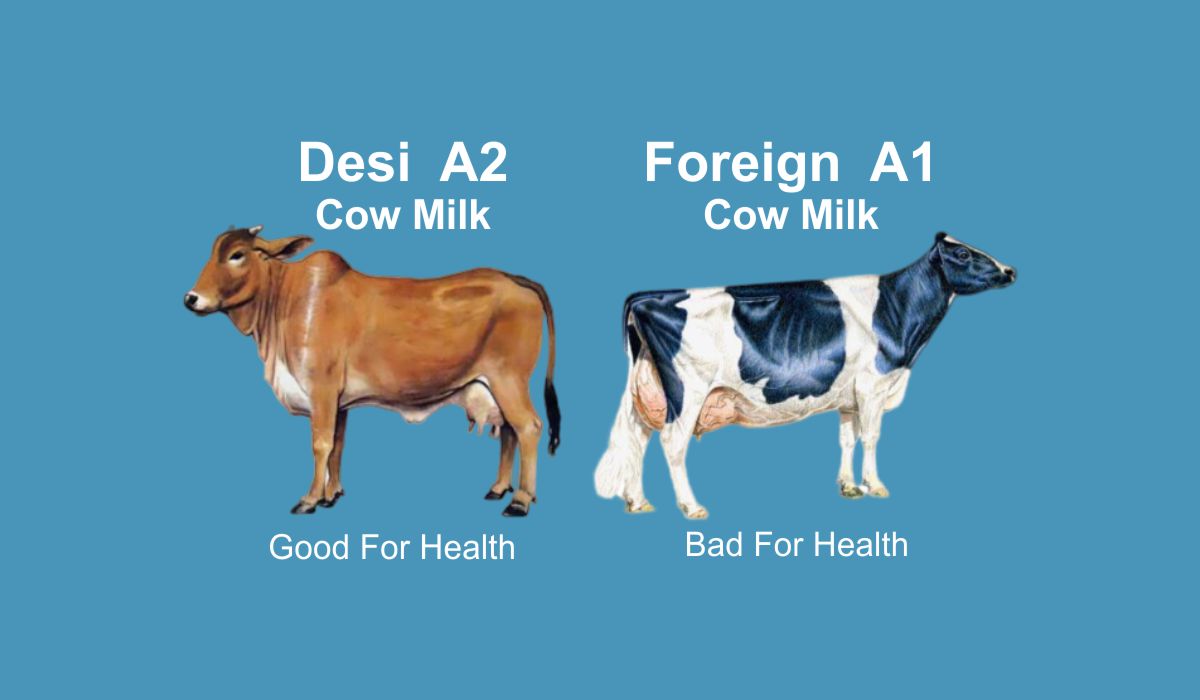If you love milk but hate feeling tummy troubles after drinking it, A2 milk may be a solution for you. Milk is notorious for being a bone-building beverage that perfectly complements some freshly baked cookies. Many folks are used to seeing milk options that include terms like organic, lactose-free and grass-fed. But when taking a stroll down the dairy aisle, you may notice newcomers—specifically, dairy milks marketed as A2 milk. Naturally, seeing a unique label like “A2” begs curious minds to wonder what exactly A2 milk is and whether it is a healthy choice.
Milk is notorious for being a bone-building beverage that perfectly complements some freshly baked cookies. Many folks are used to seeing milk options that include terms like organic, lactose-free and grass-fed. But when taking a stroll down the dairy aisle, you may notice newcomers—specifically, dairy milks marketed as A2 milk. Naturally, seeing a unique label like “A2” begs curious minds to wonder what exactly A2 milk is and whether it is a healthy choice.
What Is A2 Milk?

A2 milk may sound like a new-wave, trendy milk option. But this natural dairy milk is just like the regular milk you know and love, but with one slight variation regarding the protein in this beverage.
Casein and whey are the two major proteins found in dairy milk, with casein making up approximately 30% of the protein, per a 2021 review published in The Journal of Nutrition. Most cows in the U.S. produce milk containing two types of beta-casein, called A1 beta-casein and A2 beta-casein. Both varieties of this protein are packed with amino acids and will nourish the body. But for some, drinking cow’s milk with A1 casein can cause gastrointestinal discomfort due to certain peptides that yield once this protein is digested, per the 2021 review.
A2 milk is similar to traditional milk, as it is derived from cows, contains lactose, and is chock-full of key nutrients like protein, calcium and vitamin D. But, by using cows that only produce milk that contains the A2 beta-casein, the dairy producers are able to supply dairy milk that is free from the potentially troublesome A1 beta-casein, possibly resulting in easier digestion and better tolerance for certain people. So, like regular milk, A2 milk is not lactose-free, and it is not completely casein-free. The only difference between A2 milk and traditional milk is that the A2 variety does not contain the A1 beta-casein protein, which may be difficult for some people to digest. For those with a milk protein allergy or with a lactose intolerance, A2 milk will not be a good option.
A2 Milk Nutrition

Dairy milk is known for being a health-supporting drink that results in a silly white milk mustache after it is gulped down. And according to the 2020-2025 Dietary Guidelines for Americans, most adults in the U.S. should aim to include 3 servings of dairy daily to reap all of the benefits that milk and other dairy foods offer.
A2 milk is dairy milk and, as such, is jam-packed with important vitamins, minerals and macronutrients.
According to the A2 Milk website, the following is what you can expect to get by drinking one cup (240 mL) of 2% reduced fat A2 milk:
- Calories: 120
- Protein: 8 g
- Total fat: 5 g
- Saturated fat: 3 g
- Carbohydrates: 12 g
- Dietary fiber: 0 g
- Total sugars: 12 g (naturally occurring)
- Added sugars: 0 g
- Vitamin D: 15% DV
- Calcium: 25% DV
- Potassium: 8% DV
- Vitamin A: 15% DV
According to the USDA, one cup of regular 2% dairy milk contains the same amount of most nutrients listed above, except vitamin A (30% DV) and vitamin D (18%) due to fortification.
Is A2 Milk Healthier Than Regular Milk?

Both A2 milk and regular milk can be delicious and nutritious liquids to splash onto your cold cereal and add to your smoothies and coffee drink. Both will provide you with almost the exact amounts of macro and micronutrients and offer a satisfying taste many know and love. According to the 2021 review, there does not appear to be any cardiovascular advantage to choosing A2 milk over regular.
Remember that the only difference between A2 milk and regular milk is the variety of beta-casein protein found in the beverage. Regular milk contains both A1 and A2 beta-casein, while A2 milk only contains A2 beta-casein. When it comes to macro and micronutrients, both regular and A2 milks provide almost the exact quantities of nutrients, meaning that one does not appear to have a nutritional advantage over the other.
The Bottom Line
A2 milk is a variety of dairy milk that may be easier to tolerate, particularly if your body does not tolerate A1 beta-casein. For those who love the taste of dairy milk, are not lactose intolerant, but experience tummy trouble after enjoying this classic nutritious beverage, A2 milk may be a nice solution. Both regular and A2 milk will be nutritious choices that fit into an overall healthy diet. If you tolerate A1 beta-casein, there does not appear to be an overwhelmingly convincing reason to choose A2 milk over the traditional variety.
Sourcce: https://www.eatingwell.com








